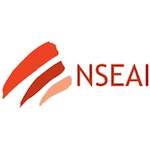
Here's Looking at You!!
Jun 24, 2022This Dad and his child are engaged in what we call joint attention. I will grant you it is pretty early on but the skill does tend to emerge between 6-14 months. It is also another one of those skills we take for granted because most of us have never heard of it before and we do not know what it means.
Joint attention is the co-ordinating of the attention of two or more persons towards an object or event and occurs every 30 seconds or more. Poor joint attention is linked to poor language development and communication skills. Without joint attention, one does not receive the message. It is an essential part of the executive functioning skill of attention, which includes joint attention, eye contact, listening, and participating.
Joint attention is important in helping people to communicate with others all through life. Children with autism frequently have delays in developing joint attention skills which in turn delays the development of language skills. It has been found that children with autism who are able to use spoken language by the time they are 5 generally have much better success in school, in social relationships, and in their adult lives than those who do not develop communication skills as a preschooler.
TYPES OF JOINT ATTENTION
1. Conventional - words/gestures to mark an object
Vocalizing attention
Mutual gazing
Inter-locator gazing
2. Literal - drawing attention to object directly
Pointing to get or share attention
Reaching/holding a hand out toward an object
Indicating gestures (head, hand, or body)
Showing
3. From fact - What I see or you see to link to
Thought / concept-driven (ToM Theory of Mind)
What I see >What I am thinking about
JOINT ATTENTION NORMS
Emerges 6-14 months
Triad of infant/person/object
After learning to regulate
interpersonal relationships
1.9-2.3/min 9-15 months (A. Durante)
4-11/min 14-32 months
0.83/min Development language delay
0.49/min Autism - there was not a decrease
in gaze to gaze interval
- There is a significant lack of positive affect coordinated with a gaze.
- Adults thus initiated a decrease in joint attention - which decreased the gaze-to-gaze interval.
2.7-4.4/min Adults every 15-20 seconds (T. Arora)
Autism deficits in social cognition (eye gaze perception, joint attention, literalness, extreme rule-based systemizing, and ToM) persist across the lifespan but are often camouflaged by learning compensatory strategies.

The IEP DEVELOPMENT EXPERTS
Make sure you SUBSCRIBE to the blog.
NSEAI's online courses efficiently lead parents and professionals to an expert level of education advocacy in just 12 days of on-demand courses that you can do at your convenience.
OUR CHILDREN DO NOT HAVE TIME TO WASTE.
LEARN TO DEVELOP A CHILD-FOCUSED IEP CORRECTLY FROM THE START vs JUST ACCEPTING A LEGALLY SUFFICIENT ONE!
CHANGE THEIR LIVES NOW
AUTHORS
Marie Lewis is an author, consultant, and national speaker on best practices in education advocacy. She is a parent of 3 children and a Disability Case Manager, Board Certified Education Advocate, and Behavior Specialist Consultant. She has assisted in the development of thousands of IEPs nationally and consults on developing appropriately individualized IEPs that are outcome-based vs legally sufficient. She brings a great depth of expertise, practical experience, and compassion to her work as well as expert insight, vision, and systemic thinking. She is passionate and funny and she always inspires and informs.
MJ Gore has an MEd in counseling and a degree in elementary education and natural sciences. She worked as a life-skills and learning support teacher She has been honored with the receipt of the Presidential Volunteer Service Award. She is the Director and on the faculty at the National Special Education Advocacy Institute. Her passion is social justice, especially in the area of education. She is a Board Certified Education Advocate who teaches professional advocates, educators, and clinicians the best practices in education advocacy.
